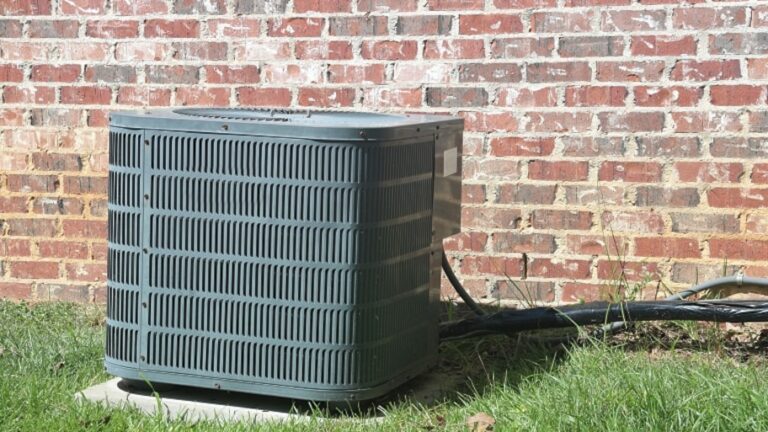Can an Oil Change Affect Air Conditioning? Find Out the Surprising Connection
An oil change can affect air conditioning if the dirty oil clogs up the engine, causing the AC to work less efficiently. Regular oil changes are crucial for maintaining proper vehicle functioning.
1. How Does Oil Change Impact The Air Conditioning System?
An oil change can have an impact on the air conditioning system. If the oil is not changed regularly, it can become dirty and clog the engine, causing the air conditioner to work less efficiently. Regular maintenance is important to keep the vehicle running smoothly.
How Does Oil Change Impact The Air Conditioning System?
An oil change may seem unrelated to your vehicle’s air conditioning system, but it can actually have an impact on its performance. Here’s how:
- Dirty oil: If you don’t change your oil regularly, it can become dirty and clog up your engine. This can restrict the flow of oil to various parts of the engine, including the air conditioning compressor. As a result, your air conditioner may not work as efficiently as it should.
- Compressor lubrication: The air conditioning compressor is lubricated by oil. If there isn’t enough oil, the compressor can overheat and fail. This can cause your AC unit to stop working and potentially lead to costly repairs. Regular oil changes ensure that your compressor is properly lubricated and functioning correctly.
- Choice of oil: Using incorrect oils, such as universal oils or oil mixtures, can damage the A/C compressor. Universal oils, often preferred by garages, have a different viscosity than synthetic PAG oils, which are recommended for air conditioning systems. Using the wrong oil can lead to compressor damage and a malfunctioning air conditioner.
- Cooling capacity: HVAC systems with too much oil can experience reduced cooling capacity. Excess oil can create an imbalance within the system and affect its overall performance, including the air conditioning. It’s important to ensure that the right amount of oil is used during an oil change to avoid any potential AC problems.
It’s clear that routine maintenance, including regular oil changes, is essential for the proper functioning of both your vehicle’s engine and its air conditioning system. By keeping up with maintenance, you can enjoy optimal performance from your car’s AC and avoid any potential issues down the line.

Credit: www.everydayhealth.com
2. The Role Of Oil In Air Conditioning System
An oil change can potentially impact the performance of your air conditioning system. Dirty oil can clog up the engine and hinder the efficiency of the AC unit. Regular oil changes are crucial for maintaining optimal functioning of your vehicle’s air conditioning.
The Role Of Oil In Air Conditioning System
Oil plays a crucial role in the air conditioning system, specifically in lubricating the compressor. Here are the key points to understand the importance of oil in maintaining the efficiency of your air conditioning system:
- Lubrication: The compressor in your air conditioning system requires proper lubrication to function effectively. Oil lubricates the moving parts of the compressor, reducing friction and wear. This ensures smooth operation and prolongs the lifespan of the compressor.
- Overheating and Failure Risks: Insufficient oil in the compressor can lead to overheating. When the compressor runs without proper lubrication, the friction increases, generating excessive heat. Over time, this can cause the compressor to overheat and ultimately fail, resulting in costly repairs.
- Reduced Cooling: Without enough oil, the compressor may not operate at its optimal capacity, leading to reduced cooling performance. Insufficient lubrication can hinder the compressor’s ability to compress refrigerant effectively, resulting in weaker airflow and less efficient cooling.
- Compatibility: It’s essential to use the right type of oil recommended by the manufacturer for your specific air conditioning system. Using incorrect oils, such as universal oils or oil mixtures, can lead to compressor damage and compromised performance.
- Regular Maintenance: Just like changing your engine oil, regular maintenance for your air conditioning system includes checking the oil level and quality. By ensuring that the compressor has sufficient clean oil, you can prevent potential issues and maintain optimal cooling performance.
Remember, neglecting the role of oil in your air conditioning system can impact its overall functionality and longevity. Therefore, always prioritize regular oil changes and maintenance to keep your air conditioning running smoothly.
3. Effects Of Dirty Oil On Air Conditioning Performance
An oil change can impact the performance of your air conditioning. When oil becomes dirty and clogs the engine, it can cause your air conditioner to work less efficiently. Regular oil changes are essential for proper vehicle maintenance and optimal air conditioning performance.
Impact Of Dirty Oil On Air Conditioning Performance:
When it comes to the effects of dirty oil on air conditioning performance, there are a few key factors to consider. Let’s take a look at how dirty oil can impact both engine efficiency and air conditioning efficiency:
Impact Of Dirty Oil On Engine Efficiency:
- Dirty oil can cause increased friction within the engine, leading to poor engine performance.
- Oil contaminants can also contribute to increased engine wear and tear, reducing overall engine efficiency.
- A clogged oil filter can restrict the flow of oil to critical engine components, further impacting engine efficiency.
Decreased Air Conditioning Efficiency Due To Clogged Components:
- Dirty oil can circulate throughout the engine, affecting various components, including the air conditioning system.
- A clogged air conditioning filter can restrict the flow of air, leading to decreased cooling capacity.
- The reduced efficiency of the engine due to dirty oil can indirectly impact the air conditioning system’s performance.
Potential Consequences Of Dirty Oil On Air Conditioning:
- Insufficient lubrication from dirty oil can cause the air conditioning compressor to overheat and potentially fail.
- The lack of proper lubrication can damage other air conditioning components, leading to costly repairs.
Neglecting regular oil changes can have a detrimental effect on both engine efficiency and air conditioning performance. It is crucial to prioritize routine maintenance to ensure optimal functioning of your vehicle’s systems.
4. Correct Oil For Air Conditioning Systems
An oil change can impact your air conditioning system as dirty oil can clog the engine, leading to reduced efficiency. Regular oil changes are crucial for maintaining your vehicle’s performance and ensuring the proper functioning of your air conditioner.
Different Types Of Oils And Their Viscosity:
- There are different types of oils that can be used in air conditioning systems, such as mineral oil, polyol ester (POE) oil, and polyalkylene glycol (PAG) oil.
- Each type of oil has a specific viscosity, which refers to its thickness or resistance to flow.
- Mineral oil is the most commonly used oil in older air conditioning systems and has a higher viscosity compared to POE and PAG oils.
- POE and PAG oils are synthetic oils and have a lower viscosity, making them more suitable for newer air conditioning systems.
- The viscosity of the oil is important because it affects the lubrication and cooling properties of the compressor.
The Detrimental Effects Of Using Incorrect Oils:
- Using incorrect oils in an air conditioning system can have detrimental effects on its performance and longevity.
- Universal oils or oil mixtures that are not specifically designed for air conditioning systems can cause damage to the compressor.
- Universal oils, often preferred by garages, are often mineral oils with a different viscosity than synthetic PAG oils.
- The use of universal oils or oil mixtures can lead to poor lubrication, increased friction, and potential compressor failure.
- It is important to use the correct oil recommended by the manufacturer to ensure optimum performance and avoid costly repairs.
Incorrect oil can have a significant impact on your air conditioning system. It is crucial to understand the different types of oils and their viscosity to make the right choice for your system. Using the wrong oil can result in various issues and potentially lead to expensive repairs.
Let’s take a closer look at the different types of oils and their viscosity, as well as the detrimental effects of using incorrect oils.
Different Types Of Oils And Their Viscosity:
- Mineral oil: This is the most commonly used oil in older air conditioning systems. It has a higher viscosity compared to synthetic oils and provides adequate lubrication for the compressor.
- Polyol ester (POE) oil: This is a synthetic oil that has gained popularity in newer air conditioning systems. It has a lower viscosity, which allows for better heat transfer and improved compressor performance.
- Polyalkylene glycol (PAG) oil: Another synthetic oil used in air conditioning systems, PAG oil also has a lower viscosity. It is often recommended for systems that use R134a refrigerant.
Using the correct oil viscosity is crucial for proper lubrication and efficient operation of the air conditioning system. Now let’s explore the detrimental effects of using incorrect oils.
The Detrimental Effects Of Using Incorrect Oils:
- Poor lubrication: Using the wrong oil viscosity can lead to inadequate lubrication of the compressor components. This can result in increased friction, heat build-up, and potential damage to the compressor.
- Reduced efficiency: Incorrect oil can affect the heat transfer capabilities of the system, resulting in reduced cooling efficiency. The air conditioner may not be able to produce cold air as effectively, leading to discomfort and inefficient cooling.
- Compressor failure: Using universal oils or oil mixtures that are not specifically designed for air conditioning systems can cause significant damage to the compressor. The varying viscosity and lack of compatibility can lead to compressor overheating and failure.
To ensure the longevity and efficient operation of your air conditioning system, it is crucial to use the correct oil recommended by the manufacturer. This will ensure proper lubrication, heat transfer, and overall performance of the compressor. Avoid using universal oils or oil mixtures that can potentially cause damage.
Always consult your technician or refer to the manufacturer’s guidelines to make the right choice for your air conditioning system.
5. The Impact Of Excessive Oil On Air Conditioning System
Excessive oil can negatively impact an air conditioning system, causing it to work less efficiently. Regular oil changes are crucial to prevent dirty oil from clogging up the engine and affecting the performance of the air conditioner.
Reduced Cooling Capacity With Excessive Oil:
- Excessive oil in the air conditioning system can lead to reduced cooling capacity.
- The excess oil can impede the flow of refrigerant, causing restricted or blocked passages.
- This blockage restricts the proper functioning of the system, resulting in reduced cooling performance.
- As a result, your air conditioner may struggle to cool the car effectively, especially on hot days.
- If you notice that your AC is not as cold as it used to be, it may be due to excessive oil in the system.
Internal Coating And Decreased Heat Transfer:
Excessive oil in the air conditioning system can have the following impacts:
- The excessive oil can coat the internal components of the AC system.
- This coating forms a layer on critical components like the evaporator and condenser coils.
- The coating reduces the transfer of heat between the air and the refrigerant, leading to decreased cooling efficiency.
- As a result, the AC system will have to work harder to achieve the desired cooling, resulting in increased energy consumption.
- Additionally, the coated surfaces can also attract dust and debris, further reducing the system’s performance.
Remember, regular maintenance and oil changes are necessary to ensure the optimal performance of your air conditioning system. If you suspect that excessive oil is affecting your AC, consult a professional technician for a thorough inspection and necessary repairs.
6. Why Regular Oil Changes Are Essential For Air Conditioning
Regular oil changes are essential for air conditioning because dirty oil can clog up the engine and make the air conditioner work less efficiently. By keeping up with routine maintenance, you can ensure that your vehicle’s air conditioning stays in top shape.
:
Regular oil changes are often associated with keeping the engine running smoothly, but did you know they also play a crucial role in maintaining optimal air conditioning performance? Here’s why regular oil changes are essential for your air conditioning system:
- Avoiding costly repairs by preventing compressor failure: One of the main components of the air conditioning system is the compressor, which relies on lubricating oil to function properly. Without regular oil changes, the oil can become dirty and contaminated, leading to increased friction and wear on the compressor. Over time, this can result in compressor failure, leading to expensive repairs or even the need for a complete replacement.
- Ensuring efficient cooling: The compressor is responsible for compressing the refrigerant gas to generate cool air. If the compressor is not properly lubricated due to old or dirty oil, it can struggle to compress the refrigerant efficiently. This can result in decreased cooling performance and longer cooldown times, making your air conditioning system less effective at keeping you comfortable during hot weather.
- Improving energy efficiency: A clogged and dirty compressor, due to old oil, requires more energy to function properly. This means that your air conditioning system will consume more energy to produce the same amount of cooling. Regular oil changes help keep the compressor clean and efficient, reducing energy consumption and potentially lowering your electricity bills.
- Extending the lifespan of your air conditioning system: By maintaining clean and fresh oil in your air conditioning system, you can help prolong its lifespan. Regular oil changes remove contaminants and debris that can cause damage to the compressor and other components. This can extend the overall longevity of your air conditioning system, saving you money on premature replacements.
- Preserving air quality: Dirty oil can lead to the accumulation of impurities within the air conditioning system, including bacteria, mold, and allergens. These impurities can negatively affect the air quality inside your vehicle, leading to unpleasant odors and potential health issues. By ensuring regular oil changes, you can help preserve the cleanliness and freshness of the air circulating in your car.
- Maintaining warranty coverage: Lastly, regular oil changes are often a requirement for maintaining warranty coverage on your air conditioning system. The manufacturer may stipulate the frequency of oil changes in order to ensure the longevity and proper functioning of the system. By adhering to the recommended oil change intervals, you can ensure that any warranty claims related to the air conditioning system will be valid.
Regular oil changes are not only important for the engine’s health but also crucial for maintaining optimal air conditioning performance. By preventing compressor failure, ensuring efficient cooling, improving energy efficiency, extending the lifespan of your system, preserving air quality, and maintaining warranty coverage, regular oil changes can save you from costly repairs and keep your air conditioning system running smoothly.
7. Tips For Maintaining A Healthy Air Conditioning System
Regular oil changes are crucial for maintaining a healthy air conditioning system. Dirty oil can clog up the engine and cause the AC to work less efficiently, leading to potential issues and expensive repairs.
Regular Oil Changes As Part Of Routine Maintenance:
- Regular oil changes are an essential part of routine maintenance for your vehicle.
- Keeping your oil clean and fresh is crucial for the overall health and performance of your engine.
- Neglecting regular oil changes can lead to various problems, including decreased fuel efficiency and engine damage.
- Dirty oil can accumulate debris and contaminants, which can affect the proper functioning of your air conditioning system.
- An oil change ensures that your engine stays lubricated, reducing the risk of overheating and potential damage to other components, including the air conditioning system.
Importance Of Following The Manufacturer’S Guidelines For Oil Specifications:
- Every vehicle manufacturer provides specific guidelines for the type of oil that should be used in their engines.
- Following these guidelines is important to maintain the optimal performance and longevity of your vehicle.
- Different engines require different oil specifications, such as viscosity and additives.
- Using the wrong oil can cause poor lubrication, excessive engine wear, and even potential damage to the air conditioning system.
- It is critical to consult your vehicle’s manual or seek professional advice to ensure that you are using the correct oil for your specific engine and air conditioning system.
By maintaining a regular oil change schedule and adhering to the manufacturer’s guidelines for oil specifications, you can ensure the overall health and performance of your vehicle, including your air conditioning system. Don’t neglect this important aspect of routine maintenance to avoid potential complications and costly repairs in the future.
Frequently Asked Questions For Can An Oil Change Affect Air Conditioning
Can Needing An Oil Change Affect Air Conditioning?
An oil change can affect your air conditioning. Dirty oil can clog your engine, causing your AC to work less efficiently.
Can Low Oil Make Ac Not Cold?
Yes, low oil can make the AC not cold as the compressor needs proper lubrication to function efficiently.
Can Oil Damage An Ac Compressor?
Oil can damage an AC compressor if incorrect oils or oil mixtures are used, leading to compressor damage.
Can Too Much Oil Cause Ac Problems?
Yes, too much oil can cause AC problems. Excessive oil can reduce cooling capacity and create a coating inside the system that hinders heat transfer.
Conclusion
An oil change can indeed have an impact on your air conditioning. Regularly changing your oil is essential to maintain optimal engine performance. When the oil becomes dirty or contaminated, it can clog up your engine and affect its efficiency.
This reduced efficiency can lead to a decrease in the performance of your air conditioning system. Furthermore, insufficient oil levels can cause the compressor to overheat and fail, resulting in expensive repairs and a complete breakdown of the AC unit.
On the other hand, excessive oil can also cause issues by reducing the cooling capacity and creating a coating that hinders heat transfer. While it may not be a common occurrence, it is important to be aware of the potential connection between an oil change and your air conditioning system.
To ensure proper functionality and avoid any issues, it is crucial to stick to a regular maintenance schedule and consult with a professional when needed. Overall, understanding the relationship between oil changes and air conditioning can help you maintain the longevity and efficiency of both systems in your vehicle.






